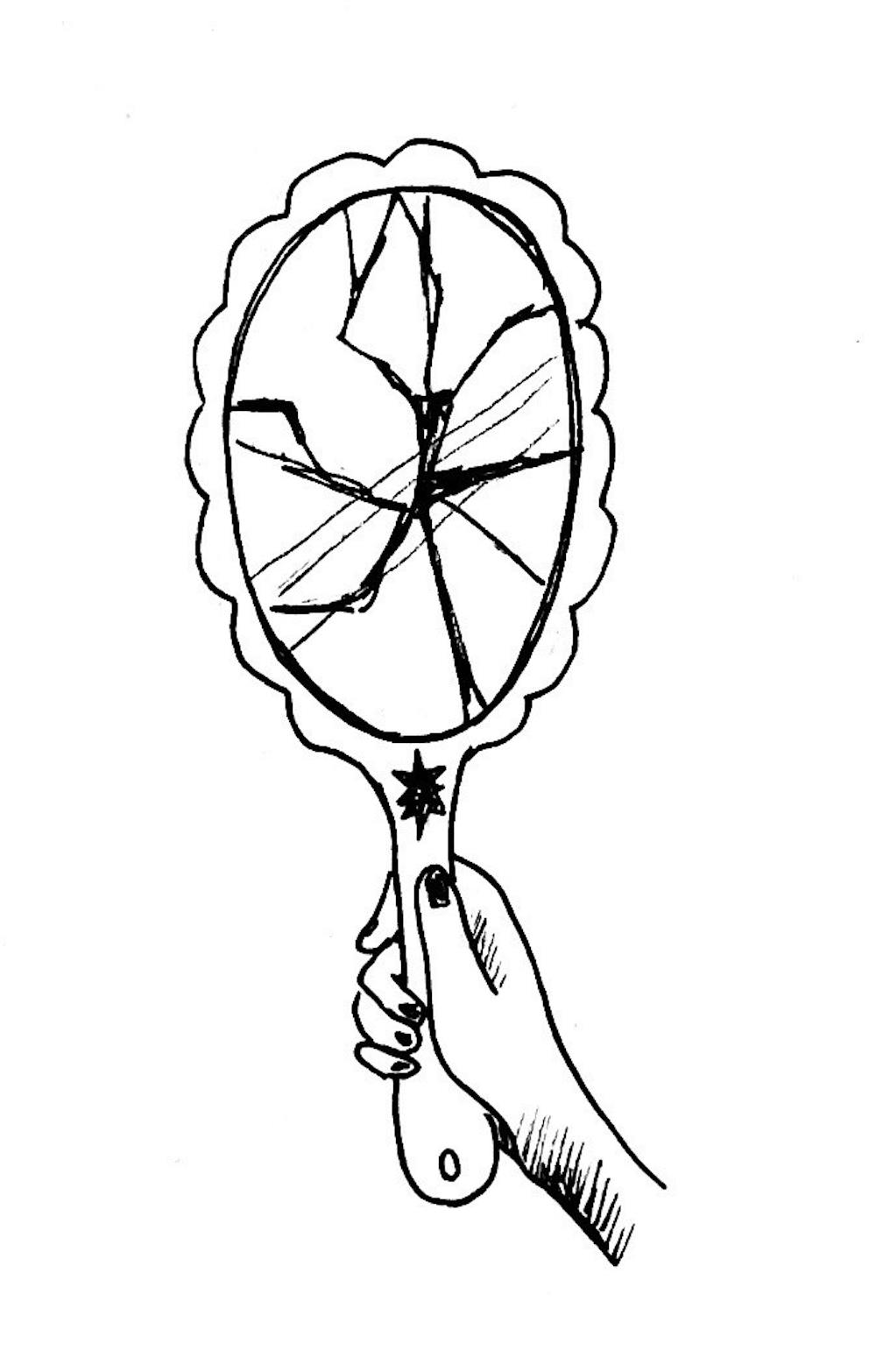On the last Saturday of J-Term, I sprained my ankle. I knew it was bad immediately from the brilliant starburst of pain ricocheting through my body as I wondered how I could manage the two hundred steps home.
The nurse’s “wow,” when she examined the ankle the next afternoon gratified me; no one could argue with the evidence of my pain. Before I left, I was outfitted with compression bandages, crutches and a black boot that seemed disproportionate to the injury’s surface area. The boot drew almost as much attention as my new halting gait. I tried hiding it under long skirts, conscious of my vanity. But in the days that followed, a tenderness blossomed for the injury, a hostage-like affection for the bruises and swelling.
Tracking the ankle became part medical responsibility (when would I be able to walk on it again?) and a secret pleasure, because my ankle was the only part of me under no imperative of beauty, the very ugliness of my injury a testament to my strength.
Membership in the cult of beauty is a prerequisite for girlhood. I can’t remember when beauty became my governing power, can't remember an age when I did not look at myself with the eye of an appraiser. If there’s escape from the cult, I’ve yet to find it.
I’ve been fortunate to have a feminist education. Never in my life did I get the impression my male classmates were intellectually superior, and at every turn feminist ideas were encouraged. I cut my teeth early on Jane Eyre and Margaret Atwood and was nearly a Gender, Sexuality and Feminist Studies minor here. However, underneath the intellectual currents of my feminism runs a counter current that demands I pay fealty to beauty.
One of the great paradoxes of modern feminism is that women must now not only be intelligent and passionate (though those passions are circumscribed through narrow confines of palatable women's ambition), but they also have to continue to stay attractive.
For most of my life, body image was framed to me as an issue of self-esteem. The tragedy of girlhood was a lack of confidence on the scale of the individual. However, soon into my time at Middlebury this framing began to bother me. By consigning body image to the vagaries of self-love, we suggest it is a women’s issue — which is to say, fundamentally unimportant.
As a first-year, I was selected as a finalist for the Spencer Prize. I used my six minutes to argue that body image is a pressing political and economic issue. Although the statistics have changed since my speech, in 2022 the beauty industry (defined as skincare, fragrance, makeup and hair care) was valued at approximately $430 billion, the plastic surgery industry was valued at $45.5 billion, and the diet industry was valued at approximately $76 billion a year. This year, the anti-obesity drug industry reached $6 billion and with the fast-growing popularity of drugs like Ozempic, Goldman Sachs estimates by 2030 it could be a $100 billion industry. In “body image,” the joint engines of patriarchy and capitalism conspire to make self-hatred good business.
This is without tallying the hours and earnings that countless women have lost while struggling with eating disorders and disordered eating, sacrificing peak academic or employment capacity in pursuit of the “perfect” body. Those are incalculable statistics.
In my speech, I foregrounded my argument in my history with disordered eating. Throughout high school, I struggled with an insecurity about my weight that was often disproportionate to its reality. Especially in the fall of my senior year, I began to restrict myself, counting my victories on the calorie tracking app My Fitness Pal and the pangs of hunger that followed me to sleep. To be clear, this was never an eating disorder. I met the criteria for disordered eating, a clinically vague term. One survey found 65% of American women between the ages of 25 and 45 report disordered eating behaviors. My practices were disordered but not statistically abnormal.
At that same time, in my Narrative Journalism elective, I was conducting long interviews with women on my high school crew team who had developed eating disorders or disordered eating patterns. The irony in our use of many of the same calorie control methods was not lost on me while I nodded in sympathy to their stories and took extensive notes.
When I think of that version of myself, measuring virtue in low-fat yogurt cups, she seems like a different person. It was maybe the saddest I have been in my whole life. I contextualize my high school behavior as a socially rewarded means of mitigating the deep sadness I carried with me. I liked being told how good I looked; I sucked on the taste of my friends’ jealousy like it was a hard candy.
The insidious truth behind the cult of beauty is that beauty is a zero-sum game. Beauty is always relative; it is never enough to be merely beautiful, we must also be more beautiful than someone else, or be the most beautiful. The cavernous hole of beauty is a want without end. There will always be another woman’s thighs, boobs or taut stomach that makes me turn to my own body in alien recognition.
I ended my Spencer Prize speech with a tentative optimism. I concluded with the story of the scale I begged my mother to send the first week of my freshmen year, far more panicked at the specter of the freshman fifteen than Covid-19. I never opened the scale, and my best friend at the time stuck a Post-It on it requesting that I call her if I ever felt like using it. The optimism was motivated by the demands of the genre (people like a happy ending) but was also genuinely felt. My issues with food and body image were so 2020; I was beyond them.
This is the type of hubris that begs for a fall.
My fall came in the basement of Jefferson Gynecology while the nurse recorded my vitals. Since my senior year of high school, I have asked nurses to keep my weight from me, but on that morning, acting on morbid curiosity or simple negligence, I was silent. When I saw the number behind me I crumpled, much like when in sophomore year I was punched straight on the nose.
The weight I gained felt like failure, much the same as if I had failed to turn in an assignment on time on Canvas: There was no one but myself to blame for neglecting the job. Beauty feels like the worst job to me, a job with no financial benefit that we continue to give a strange moral weight.
I had always been in the grip of the cult of beauty; it was only when I was no longer a size zero nineteen-year-old that I felt its sting.
I could close this piece with a moment of revelation: the warmth of the sun as I took my first steps out of the boot on the Santa Monica boardwalk, sweat soaking my hairline while my friends transform into Amazonian goddesses on the indoor bike, that expansive feeling when I feel that I am beautiful and everyone else is, too.
But there is also this: begging my friends to tell me I was pretty just a few weeks ago on the walk back from bar night, how quick it takes for a glance at the pimples on my face to demolish me and remembering my nineteen-year-old self giving a speech on the tyranny of beauty while she admires the shape of her rose quartz earrings in the camera.

Sarah Miller '24 (she/her) is an Editor at Large.
She previously served as Opinions Editor and Staff Writer. Miller is an English major on the Creative Writing track. She hails from Philadelphia and spent the spring studying English at Trinity College Dublin. She has interned for The New England Review and hosts a WRMC radio show where you can still listen to her many opinions.


